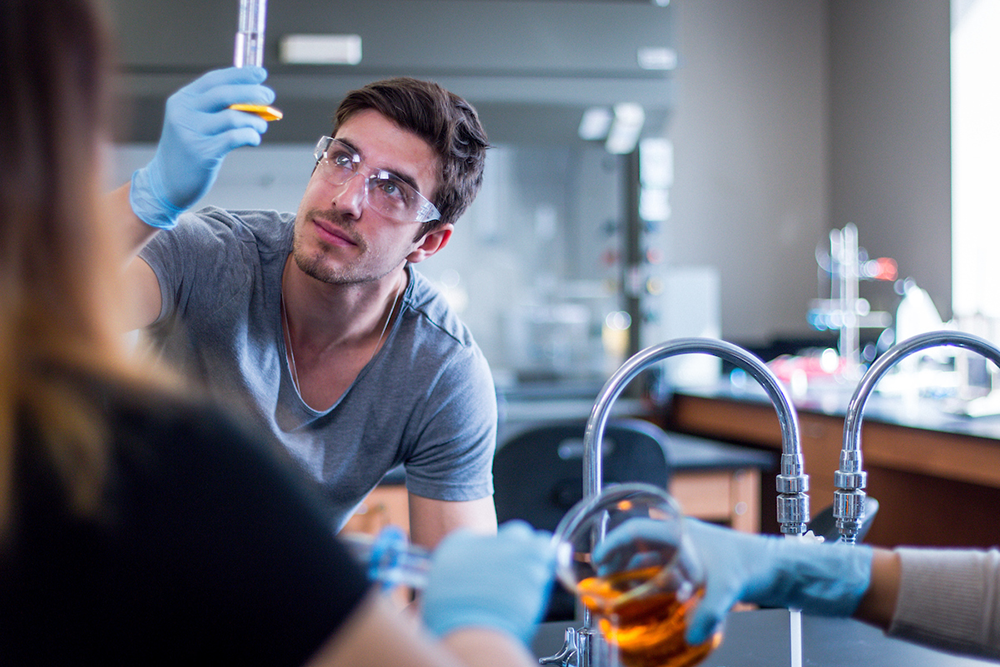
Have you been considering a bachelor’s degree in chemical engineering? Maybe you don’t know where to start or what questions to ask? You’re not alone!
Here is a list of 8 questions that Dr. Erik Jorvig, Ph.D., answered that can help you either start or continue your journey!
Q&A with Dr. Erik Jorvig, PhD
What is chemical engineering?
Chemical engineering is the application of engineering principles to chemical processes. This can be in a variety of areas. Bulk chemicals, petroleum, pharmaceuticals, and batteries, to name a few. Virtually anything that has a chemical component can be influenced by chemical engineering principles.
What kind of career can I get with a chemical engineering degree?
A chemical engineering degree opens a lot of career avenues including chemical production, petroleum production, and pharmaceutical development and production. There’s also battery development and production, environmental engineering, and more.
How much money can I make as a chemical engineer?
Chemical engineering regularly tops the list of highest pay for engineering disciplines. The BLS lists the average salary for a chemical engineer in the US as $105,000. The number of jobs in this area is growing 14% per year.
What kind of topics will I learn at Concordia?
You would learn engineering topics like thermodynamics, fluid dynamics, heat transfer, mass transfer and process control and design. All of this from a strong science foundation in chemistry and physics.
What are the benefits of getting a degree in chemical engineering?
The benefits of a degree in chemical engineering are the ability to help fix societal problems by improving chemical processes and developing new chemical processes. Additionally, you can obtain a high-paying job in a fast-growing field.
What kind of skills should I have/learn to become a chemical engineer?
You should have a strong foundation and interest in the sciences, especially chemistry. You should be a good critical thinker with an interest in solving questions or puzzles related to chemical processes.
How secure is this job?
This is a fast-growing field with a lot of demand for skilled workers. Job stability is generally good. You may notice a transition of workforce from legacy industries such as petroleum companies to more sustainable industries like battery production or environmental engineering.
Once I finish my bachelor’s, will I need to further my education to get a job?
There are many jobs available at a bachelor’s level. If you’d like to specialize in an area or obtain a leadership role in a company, additional training at the master’s level may be advisable.
What next?
Chemical engineering has the potential to be an incredibly rewarding career and by asking the right questions, you can get a better understanding of if this is the right field for you. If you still have questions or want to learn more about how Concordia University Wisconsin can help you start a career in engineering, let us know. Learn about our chemical engineering degree and everything that comes along with it at CUW.